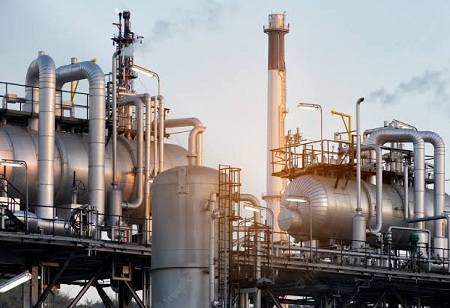
India India will move forward with the development of numerous smaller refineries with a combined capacity of 20 million metric tonnes, according to Hardeep Singh Puri, the union minister for petroleum and natural gas. Speaking to the media on the sidelines of IACC-NIC's maiden energy summit, the minister declared that in addition to traditional fuels, refineries will place a significant emphasis on petrochemicals.
Refineries will produce petrochemicals and green hydrogen while discussing the construction of more refineries and their relationship to clean energy. We intend to raise the refining capacity from the current 250 million metric tonnes per year to 400 or 450 million metric tonnes per year. We are not looking at the larger refineries, but rather a lot of those that process 20 million metric tonnes annually.
He commented on the development of ethanol blending, saying, "We have attained 10% blending in June 2022, and our savings on import costs were 41,000 crore, helping farmers as well. By far exceeding the initial goal of 2030, we will reach the 20 percent blending goal by 2025. India is a success story in biofuel, and we are leveraging our G-20 presidency to further the biofuel alliance.
"Any collaboration with the US would require a considerable focus on clean energy," the minister said at the summit hosted by the Indo-American Chamber of Commerce North India Council (IACC-NIC). India and the US are currently forging a new collaboration that will not only strengthen and expand their current areas of cooperation but also open up new ones.
He added that preserving accessibility, affordability, and sustainability in the energy industry is a significant problem for the administration. The Summit Chair, Chairman of the IACC's Energy Committee, and Operating Partner of Essar Capital Limited, Sunil Jain, stated: "If the world is to succeed, we must deploy three times as many renewable energy resources. By 2030, India will require 500 billion dollars; we want huge storage capabilities, such as nuclear energy. Technology integration and a holistic approach are required for the energy transition.
Lalit Bhasin, national president of the IACC, India is prepared on every level. We need to think about things like whether we can transition away from conventional energy sources, the best time frame for doing so, and alternative sustainable energy sources, among other things.
We use cookies to ensure you get the best experience on our website. Read more...